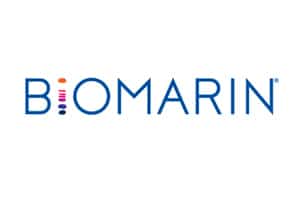
Rare disease specialist BioMarin is hoping to file for approval its haemophilia A gene therapy valoctocogene roxaparvovec (valrox) in the second half of next year, if its ongoing phase 1/2 trial continues as planned.
The California biotech said during an R&D update yesterday that new FDA guidance on gene therapy for haemophilia suggests that study may support accelerated approval for the one-shot therapy, which uses a viral vector to deliver a functional gene for the factor VIII, the clotting factor missing in this form of the blood disorder.
There are a few criteria for BioMarin to meet however, including showing that its factor VIII assay is robust as a surrogate marker, and valrox is able to achieve factor VIII levels in the normal range that predict a reduction in annualised bleed rates (ABR).
“Valrox phase 1/2 data conforms to regulatory requirements for expedited registration,” said Geoff Nichol, BioMarin’s chief medical officer, during the update. He also said that by the time of the filing BioMarin should have 3.5 years of data from the phase 1/2 trial.
The company reported preliminary results from the study earlier this year, revealing a 97% reduction in mean annual bleed rates (ABR) with most patients no longer needing preventative factor VIII injections, although some analysts questioned a tail-off in factor VII levels in the second year after dosing. ABR data in the second year looks good, however, with 14% of patients bleed-free prior to dosing, rising to 71% after a year and 86% after two.
“We are meeting with the FDA regularly, consistent with [valrox’] status as a breakthrough therapy, and our most recent interactions with the FDA have given us increased confidence and alignment on our development and accelerated regulatory strategy,” said BioMarin’s chief executive Hank Fuchs.
During the update, BioMarin also laid out its expectations for vosoritide, a drug for short stature in children with achondroplasia in a phase 3 trial due to read out before the end of 2019.
The pivotal trial (Study 301) involves children aged 5 to 14 and is now fully enrolled, with subjects receiving either vosoritide or placebo over 52 weeks, and will be complemented by a phase 2 study in infants and younger children. Earlier mid-stage studies have shown that the drug achieved almost 6cm of additional height in children treated with the drug for up to 42 months.
Achondroplasia is the leading cause of short stature, and is caused by fibroblast growth factor receptor 3 (FGFR3) mutations that block the development of cells (chondrocytes) responsible for cartilage and bone growth. Vosoritide – an analogue of C-type natriuretic peptide (CNP) – is thought to work by reducing the effects of overactive FGFR3.
There’s a desperate need for new treatments for achondroplasia because growth hormone – the typical treatment for short stature – has limited efficacy in improving height and can aggravate the body disproportion (short limbs) seen with the disease.
BioMarin already has seven drugs on the market, including recent launch Palynziq (pegvaliase) for phenylketonuria, and is steadily moving towards its objective of pushing sales above $2bn by 2020, recently predicting that revenues will be around $1.5bn this year.




